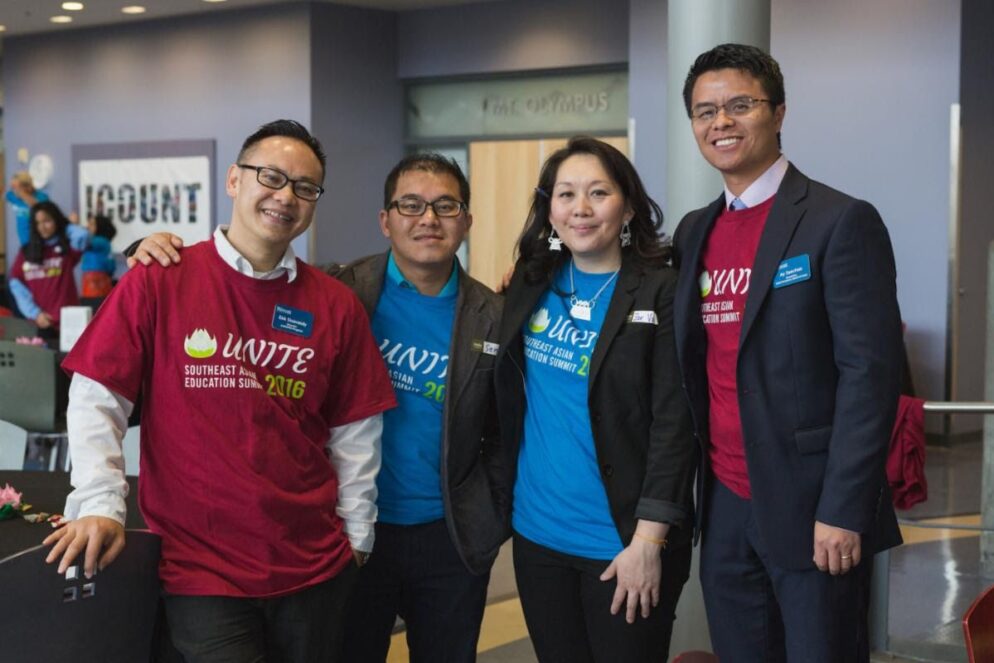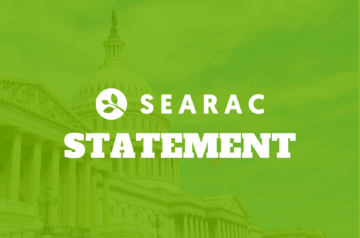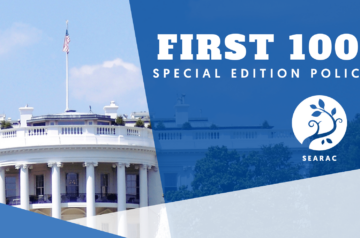Washington, DC – SEARAC commends the Washington State Board for Community and Technical Colleges (SBCTC) for providing student applicants with expanded options for ethnic identifiers. The identifiers critically include Southeast Asian American ethnicities that are historically unacknowledged and underrepresented in educational and economic opportunities–Hmong and Mienh, in addition to Cambodian, Laotian, and Vietnamese. This change to disaggregate SBCTC’s student data will ensure that SEAAs are seen and supported by the 34 public community and technical colleges in Washington State, which is home to more than 126,000 SEAAs.
“Disaggregating data is a civil rights issue,” said Katrina Dizon Mariategue, acting executive director of SEARAC. “Southeast Asian American students and their educational needs and aspirations have been rendered invisible for far too long because of the persistent myth of a single ‘Asian’ group. SEARAC applauds the SBCTC for its exemplary action to improve student data and its commitment to educational equity for Southeast Asian American students and all students in Washington State.”
“I feel honored to be part of the Washington State Board for Community and Technical College (SBCTC) system in bringing us closer to our equity, diversity and inclusion goals,” said Ay Saechao, president of the Southeast Asian American Education (SEAeD) Coalition, a SEARAC partner. “As a Mienh American and also through my roles as the President of SEAeD and Dean at Highline College, I personally and professionally understand the importance of visibility and representation in increasing student learning, success, and completion for marginalized communities. A few months ago, it came to light our Southeast Asian ethnic groups – Mienh and Hmong – were not included in the list of ethnic identifiers. Our leaders from Seattle Central College (Dean Kao Lezheo and ctcLink Project Director Daniel Cordas), Highline College, and SBCTC (Ha Nguyen, Carmen McKenzie and Jan Yoshiwara) came together to address the matter swiftly and intentionally to include the two ethnic groups in our system data. I know we will continue to march forward pushing for change and initiatives that support inclusion for all of our students.”
“The Southeast Asian American community represents important ethnic and cultural diversity,” said Jan Yoshiwara, executive director of the Washington State Board for Community and Technical Colleges. “By adding Hmong and Mienh as distinct ethnic groups in our statewide data system – ctcLink – colleges can better understand key challenges that inform how best to serve Southeast Asian students and staff. The Washington state community and technical college system leads with racial equity to maximize student potential and transform lives, and this will help us make sure we achieve our vision.”
Postsecondary data continue to fail to represent diverse communities, inhibiting efforts to support all students to learn and thrive. While the US Census Bureau reports data on at least 25 distinct, self-identified Asian American and Pacific Islander (AAPI) groups, data collections at most institutions of higher education aggregate AAPI communities under a monolithic “Asian” or “Native Hawaiian or Other Pacific Islander” category. By failing to account for the unique linguistic, cultural, and historical differences that influence educational and economic outcomes and opportunities, postsecondary data mask inequities such as those experienced by SEAAs.
For more information on how policymakers and institutions of higher education can disaggregate postsecondary data, read the joint report by SEARAC and the Institute for Higher Education Policy, “Everyone Deserves To Be Seen.”



